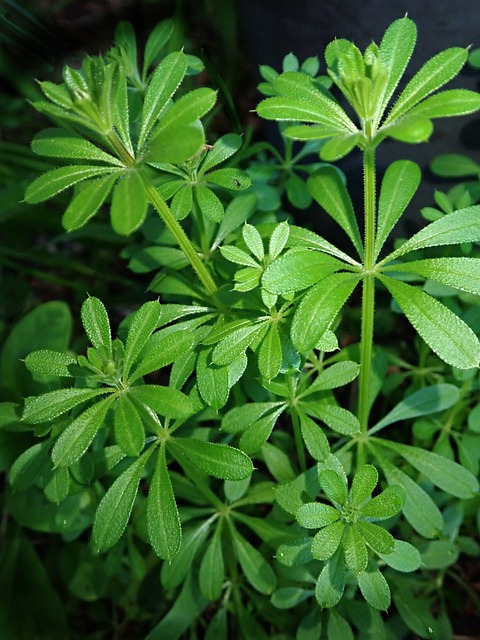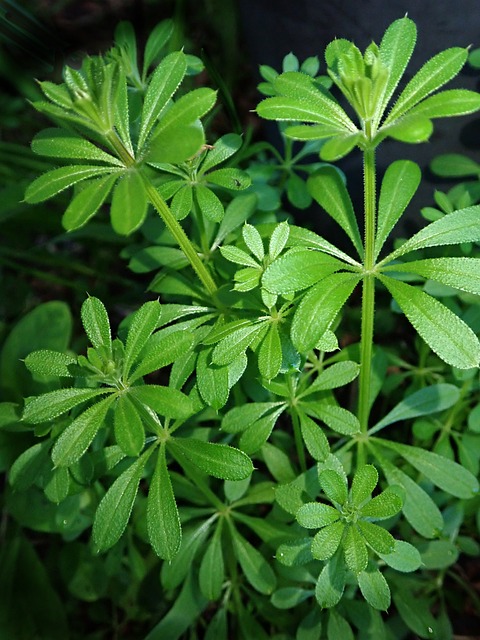
THCA (tetrahydrocannabinolic acid), a non-psychoactive compound found in cannabis, has gained attention for its potential therapeutic benefits in promoting sleep health. Unlike its psychoactive counterpart THC, THCA interacts with the endocannabinoid system to enhance sleep quality and duration without causing psychoactive effects, making it a safe option for sleep support. Studies suggest that THCA's effects are distinct from CBD, another cannabinoid commonly associated with relaxation. While both compounds influence the endocannabinoid system, THCA's indirect agonism of CB1 and CB2 receptors offers a relaxing effect without the sedative side effects sometimes seen with CBD. This selective action may improve sleep architecture and contribute to more restorative sleep, which is beneficial for overall well-being. Recent research comparing THCA to CBD indicates that THCA might be particularly effective in regulating sleep-wake cycles and could be a superior choice for individuals with insomnia or those looking to enhance their sleep quality. Users considering cannabinoids as sleep aids should weigh the differences between THCA and CBD for sleep, as these compounds may affect sleep differently due to their unique mechanisms of action.
Discover the transformative effects of THCA (Tetrahydrocannabinolic Acid) flowers on your sleep and overall well-being. This article delves into the burgeoning research on THCA’s benefits, distinguishing its properties from those of CBD. Explore how THCA vs CBD for sleep can influence restful slumber, offering insights into their differential impact. Join us as we unveil the potential of these cannabinoids to enhance your nightly repose and contribute to a more balanced lifestyle.
- Unraveling the Benefits of THCA Flower: A Closer Look at Its Potential for Sleep and Well-being
- Thorough Comparison: How THCA Differs from CBD in Promoting Restful Slumber
Unraveling the Benefits of THCA Flower: A Closer Look at Its Potential for Sleep and Well-being

Uncovering the therapeutic properties of THCA, or tetrahydrocannabinolic acid, the raw form of THC found in hemp and cannabis plants, has garnered significant attention. Unlike its psychoactive counterpart, THC, THCA exists naturally in hemp and is non-psychoactive, making it an appealing alternative for individuals seeking wellness benefits without the mind-altering effects. A notable aspect of THCA’s potential benefits is its influence on sleep patterns. Studies suggest that THCA interacts with the body’s endocannabinoid system, which regulates sleep cycles and overall restorative sleep quality. This interaction can lead to improved sleep duration and efficiency, addressing a common concern for many.
When considering cannabinoids for enhancing sleep, the comparison between THCA and CBD is particularly telling. While both compounds have been researched for their sleep-promoting properties, THCA appears to be more effective in some cases. Its ability to act as an indirect agonist of the CB1 and CB2 receptors may contribute to its relaxing effects without the sedative properties that CBD can sometimes possess. This selective action could be beneficial for individuals looking to alleviate insomnia or improve sleep architecture, contributing to a more balanced and restorative state of well-being.
Thorough Comparison: How THCA Differs from CBD in Promoting Restful Slumber

Cannabidiol (CBD) and Tetrahydrocannabinolic Acid (THCA) are both compounds found in the cannabis plant that have gained attention for their potential health benefits. While CBD is well-known for its calming and non-psychoactive properties, THCA, which precedes THC when heated, exhibits unique characteristics that can influence sleep quality differently.
THCA is distinguished from CBD primarily by its ability to interact with the body’s endocannabinoid system in a way that may be more conducive to restful slumber. Unlike CBD, THCA possesses a chemical structure that includes a free carboxyl group at the eighth carbon chain, which can bind to CB1 and CB2 receptors with higher affinity under certain conditions. This binding action may enhance the body’s natural regulatory functions related to sleep-wake cycles, potentially leading to more restorative sleep. On the other hand, CBD interacts with these receptors in a less direct manner, often exerting an overall calming effect that can also promote relaxation and drowsiness, contributing to better sleep for some individuals. The distinction between THCA vs CBD for sleep is not just about their interaction with the endocannabinoid system but also involves their different effects on various physiological processes that govern our ability to achieve a restful state of sleep. Therefore, when considering cannabinoids for improving sleep quality, it’s important to understand the nuanced differences between THCA and CBD, as these can influence the efficacy and experience of the user.
THCA flower emerges as a notable contender in the quest for improved sleep and overall well-being, offering potential benefits distinct from those of CBD. As this article has delved into, THCA’s unique properties suggest it could be a valuable addition to nightly routines aimed at restful slumber. The comparison between THCA and CBD for sleep reveals intriguing differences, particularly in their interactions with the body’s endocannabinoid system. While both compounds hold promise for promoting better sleep, THCA presents a unique angle that could cater to various individual needs. As research continues to evolve, the role of THCA flower in supporting healthy sleep patterns and enhancing general well-being is an area of growing interest and potential application.



